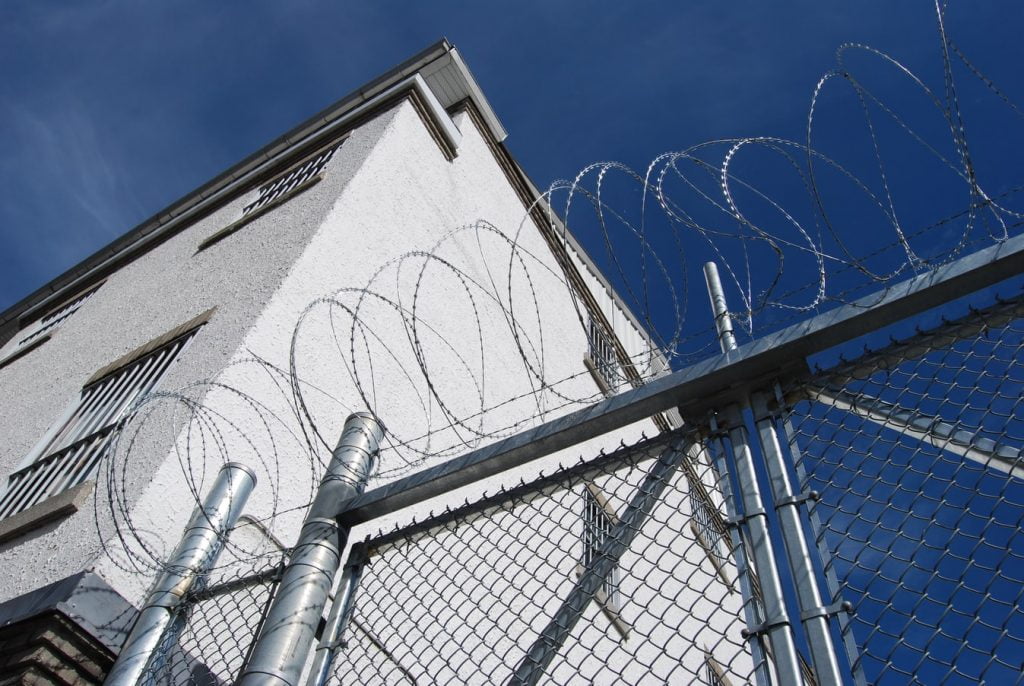On July 11, Parliament Speaker Shalva Papuashvili, Public Defender of Georgia Nino Lomjaria, and Deputy Minister of Justice Tornike Cheishvili held public hearings considering the 2021 report of the Council of Europe’s Committee for the Prevention of Torture (CPT) on the situation in Georgia’s penitentiary.
Speaker Papuashvili noted that the discussion, attended by representatives of the CPT, international organizations, the diplomatic corps, and local civil society organizations, was an important opportunity to analyze the current situation in penitentiary institutions.
He emphasized the issue of ill-treatment of prisoners by penitentiary administrations had been eliminated but noted that the issue of informal hierarchies and criminal subculture in prisons “may exist and therefore it is important that today we listen to all these perspectives and analyze what the situation is in this regard in penitentiary institutions.”
Deputy Justice Minister Cheishvili denied the existence of a criminal subculture and illegal prisoner funds (called “obshchak” in the gang parlance) after the meeting, and stated, “how can we say the criminal subculture is getting stronger when in 2020 the Committee of the Ministers of the Council of Europe did not confirm the existence of a criminal subculture in the penitentiary institution in Georgia?”
Public Defender Lomjaria however, pointed to her own query into the matter, which revealed instances of physical violence in prisons “for which the motive was the involvement of the so-called criminal authorities and violence against other prisoners.”
“When you enter the [prisons] it is very noticeable – and the CPT authorities also talked about this fact – that certain prisoners follow you and do not give other prisoners the chance to communicate with you,” she emphasized.
CPT’s Report
The CPT’s report is based on a visit on May 17-24, 2021, and the evidence is largely collected from Prison No. 14 in Geguti, No. 15 in Ksani, and No. 17 in Rustavi. The CPT monitors also went to Prison No. 2 in Kutaisi and the secure medical ward of VivaMedi Clinic in Tbilisi where prisoners are sometimes transferred for medical treatment.
The CPT noted that they heard no allegations regarding ill-treatment of prisoners by staff, albeit exposed numerous other issues in their report.
The delegation reported there are “virtually no organized activities” at prisoners’ disposal, such as education, vocational training, or organized sports, and that any art workshops or classes that might have existed were since suspended during the COVID-19 pandemic.
CPT also highlighted the absence of a clear allocation policy for inmates, saying there are no attempts made to separate recidivists from first-time offenders, which creates risks of young men “being ‘enrolled’ (willingly or not) to the informal ‘crime academy’ rather than being offered any real prospects of social rehabilitation.”
They denoted that the prisons are understaffed, making it “impossible for the staff to exercise full control.”
The delegation was further concerned by the visible display of criminal symbols and a serious disparity between prisoners’ cells which, according to them, clearly points to the existence of a criminal hierarchy.
Against this backdrop, inmates also confirmed the existence of a hierarchy and illegal prisoner funds to the delegation. They spoke of “verbal insults and threats (of physical violence and/or death vis-à-vis themselves and their families) from fellow inmates in the three prisons visited, usually in the context of the prisoner’s incapacity… or – rarely – unwillingness to contribute to the ‘obshchak.'”
Overall, the CPT remarked that “many prisoners appeared clearly afraid to speak with the delegation.” “The combination of the above-mentioned factors resulted in a high risk of inter-prisoner violence, intimidation, and extortion,” they concluded.
The delegation was led by Mykola Gnatovskyy and included Răzvan Horaţiu Radu, Marika Väli, as well as, Borys Wódz, Head of Division at the CPT’s Secretariat, and Marzena Ksel, a medical doctor and expert.
Government Response
The report noted that in talks with the Minister of Justice following the visit, the “Minister did not disagree with its findings regarding the influence of informal prisoner hierarchy and the phenomenon of inter-prisoner violence in semi-open prisons.”
Instead, the government presented a Strategy and Action Plan directed at prison reform which saw the three prisons being replaced by a series of smaller institutions that would allow for “more organized and individualized activities, and with more staff of appropriate categories.”
According to the CPT’s report, the government also envisaged segregating leaders of the informal prisoner hierarchy from the rest of the prison population to “eliminate their influence on fellow prisoners.”
According to the document, while the reforms were delayed by COVID-19, the Ministry “assured” the CPT that all of the reforms would be implemented by 2025.
Read the Georgian Government’s detailed response to the CPT here.
This post is also available in: ქართული (Georgian) Русский (Russian)

